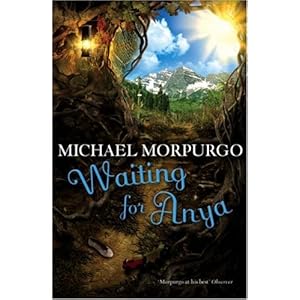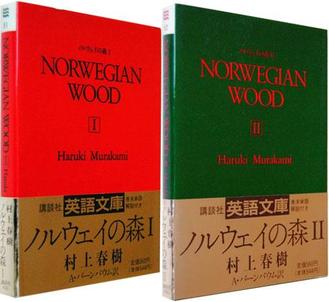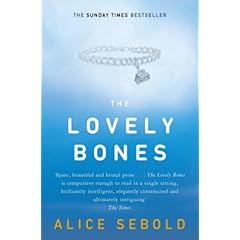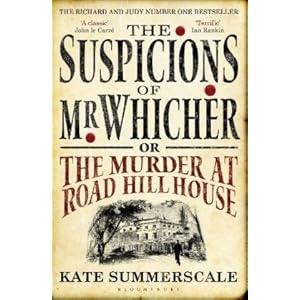 Glitz. Glamour. A love that has survived the War. Extra-marital affairs. Grand parties. Opulence. Alcohol. A yellow Rolls Royce. Chauffeurs. Friendship... and New York in the 1920s (the 'Jazz' age). This pretty much sums up 'The Great Gatsby' - a classic piece of literature from the 20th century.
Glitz. Glamour. A love that has survived the War. Extra-marital affairs. Grand parties. Opulence. Alcohol. A yellow Rolls Royce. Chauffeurs. Friendship... and New York in the 1920s (the 'Jazz' age). This pretty much sums up 'The Great Gatsby' - a classic piece of literature from the 20th century.
The story revolves around the rich and glamorous party-goers in New York in the 20th century - in a time when alcohol has been prohibited, when the economy is buzzing (post World War I), and when people are enjoying life to the fullest
The book starts off on a note that grabs the reader's attention, and instinctively makes them want to flip over the page, to figure out what the narrator is 'reserving judgment on':
In my younger and more vulnerable years my father gave me some advice that I've been turning over in my mind ever since. 'Whenever you feel like criticizing anyone,' he told me, 'just remember that all the people in the world haven't had the advantages that you've had.'
And then the story kicks off, with the introduction to Jay Gatsby - the narrator's (a 22 year old Nick Carraway) wealthy neighbor. Gatsby is an important part of the circle of the rich and famous socialites in New York. Holding alcohol-heavy parties regularly, which carry on 'til the wee hours of the morning, where people turn up, invited or otherwise, Gatsby seems to be at the heart of the socializing. However, ironically enough, he never seems to be drunk or an active part of these parties - instead, he seems to be a mere spectator. No one seems to know who he is, and when Nick asks, people look at him puzzled.
However, there are rumors about Gatsby - his lineage, where he comes from, and where he has earned his money. People indulge in hyperbolic assumptions and wonderings, which Nick himself is fascinated by. However, as the story progresses, Gatsby tells our narrator about why he purchased his place - it's bang opposite Daisy's house across the river. Daisy, Nick's cousin, used to be Gatsby's lover prior to the war, but when Gatsby left for the War, she married Tom. Tom, also opulent, comes across as obnoxious and arrogant; much unlike Gatsby. He boasts of his mistress, and in fact, insists that Nick meet her.
Gatsby clearly has just one mission: to sweep Daisy off her feet, and make her leave Tom. Tom, in all his arrogance, cannot deal with this, and the book ends tragically, where we come to see that all the wealth in the world doesn't buy friends, and people are quick to judge based on nothing; where people act without thinking of the consequences, and how jealousy and anger combined result in an act of ultimate unfairness. It's this ending that makes the book as heart-achingly sad and depressing.
This beautifully written book vividly brings to life the society of New York in the 1920s. From the fact that women are meant to be beautiful and not much else (I'm glad it's a girl. And I hope she'll be a fool -- that's the best thing a girl can be in this world, a beautiful little fool. - Daisy on her daughter) to, people indulging in idle gossip about their host. It highlights the jealousy of a jilted lover, and the passion of an old one. It stresses on pride and money, of opulence and fair-weather friends.
The prose itself is almost like poetry, with some philosophical meanderings, and thought-provoking quotes. A powerful book, this book has made an impression me, like very few other books have.
Overall, an 8 on 10, and a must-read. I'm off to find another book by Fitzgerald now, and it's much to my dismay that due to his death at a relatively early age, there aren't that many.
 Dragoman's The White King is a coming-of-age tale, based in a communist Romania, under the Ceausescu rule.
Dragoman's The White King is a coming-of-age tale, based in a communist Romania, under the Ceausescu rule. 
 Twelve year old Jo, a shepherd boy, lives in a small French mountain village, during the late 1930s-early 1940s. World War II's broken out, and Jo's father is away in action, while Jo is assuming some of his father's responsibilities, and simultaneously attending school. The War is far away from this village, and to Jo it almost seems quite unreal, and he's unsure of his opinion about it.
What Jo thought about the war and about the occupation seemed to depend on whether he had just talked to Maman or to Grandpere: he could never make up his mind.
Twelve year old Jo, a shepherd boy, lives in a small French mountain village, during the late 1930s-early 1940s. World War II's broken out, and Jo's father is away in action, while Jo is assuming some of his father's responsibilities, and simultaneously attending school. The War is far away from this village, and to Jo it almost seems quite unreal, and he's unsure of his opinion about it.
What Jo thought about the war and about the occupation seemed to depend on whether he had just talked to Maman or to Grandpere: he could never make up his mind.  I don’t know why I picked up this book. It might have been because I’ve got The Butterfly Lion and Private Peaceful on my reading list. It might be because it was the only book that looked tempting at Waterstones the other day (and I couldn’t find a copy of The Great Gatsby - the book I actually wanted to purchase). I don’t know - but, I picked it up, and silently cursed myself, for... the last couple of times I’ve picked up a book without reading any reviews, I’ve regretted it (Suspicions of Mr. Whicher being a prime example). But, this book ended up restoring my faith in impulsive book buying.
I don’t know why I picked up this book. It might have been because I’ve got The Butterfly Lion and Private Peaceful on my reading list. It might be because it was the only book that looked tempting at Waterstones the other day (and I couldn’t find a copy of The Great Gatsby - the book I actually wanted to purchase). I don’t know - but, I picked it up, and silently cursed myself, for... the last couple of times I’ve picked up a book without reading any reviews, I’ve regretted it (Suspicions of Mr. Whicher being a prime example). But, this book ended up restoring my faith in impulsive book buying. So far, this year, I’ve read two books that can only be described as ‘coming of age’ books. This year, I’ve read two books based in Tokyo, where the protagonist comes from some small village in Japan, and have come to Tokyo with a purpose. This year, I’ve read two books that have the title of a Beatles song (well, one of them has a title from a Lennon song). And both books have been written by different authors! (The other book was David Mitchell’s Number9Dream. Mitchell’s oftened been likened to Murakami, so...)
So far, this year, I’ve read two books that can only be described as ‘coming of age’ books. This year, I’ve read two books based in Tokyo, where the protagonist comes from some small village in Japan, and have come to Tokyo with a purpose. This year, I’ve read two books that have the title of a Beatles song (well, one of them has a title from a Lennon song). And both books have been written by different authors! (The other book was David Mitchell’s Number9Dream. Mitchell’s oftened been likened to Murakami, so...) Pamuk’s The White Castle won the Nobel Prize for literature in 2006, and after reading this book, it is not difficult to figure out why. The Turkish author offers immense insight into the life, philosophies and the psychology of the Hoja (master or teacher) and his slave - a young Italian intellect who was captured by the pirates, and auctioned on the Istanbul slave market. in the 17th century.
Pamuk’s The White Castle won the Nobel Prize for literature in 2006, and after reading this book, it is not difficult to figure out why. The Turkish author offers immense insight into the life, philosophies and the psychology of the Hoja (master or teacher) and his slave - a young Italian intellect who was captured by the pirates, and auctioned on the Istanbul slave market. in the 17th century. You know how it is - People recommend a book to you, you read the gist at the back, it looks interesting, you buy it, you live to regret it. That pretty much sums up Vonnegut’s Breakfast of Champions, for me. I read the first 50 pages, and attributed the dullness to the book kicking off slowly. Read the next fifty, and figured, it’s bound to get better. The next fifty was even more painstaking, and by the time I hit the 200th page, I figured this book was as pointless as it gets.
You know how it is - People recommend a book to you, you read the gist at the back, it looks interesting, you buy it, you live to regret it. That pretty much sums up Vonnegut’s Breakfast of Champions, for me. I read the first 50 pages, and attributed the dullness to the book kicking off slowly. Read the next fifty, and figured, it’s bound to get better. The next fifty was even more painstaking, and by the time I hit the 200th page, I figured this book was as pointless as it gets. This book is not in the same league as A Fine Balance, or even, for that matter, Family Matters. However, the more I think about this book, the more I appreciate it. Mistry has this amazing knack of bringing to life a realistic Indian society, and how they handle various crises and catastrophes that life brings in its wake.
This book is not in the same league as A Fine Balance, or even, for that matter, Family Matters. However, the more I think about this book, the more I appreciate it. Mistry has this amazing knack of bringing to life a realistic Indian society, and how they handle various crises and catastrophes that life brings in its wake. This is Sebold’s debut novel, and while there’s lots of loopholes in the story, the premise in itself is interesting.
This is Sebold’s debut novel, and while there’s lots of loopholes in the story, the premise in itself is interesting. A book with so much potential, and a book I struggled to finish... I just finished it because I hate leaving books half-read.
A book with so much potential, and a book I struggled to finish... I just finished it because I hate leaving books half-read.